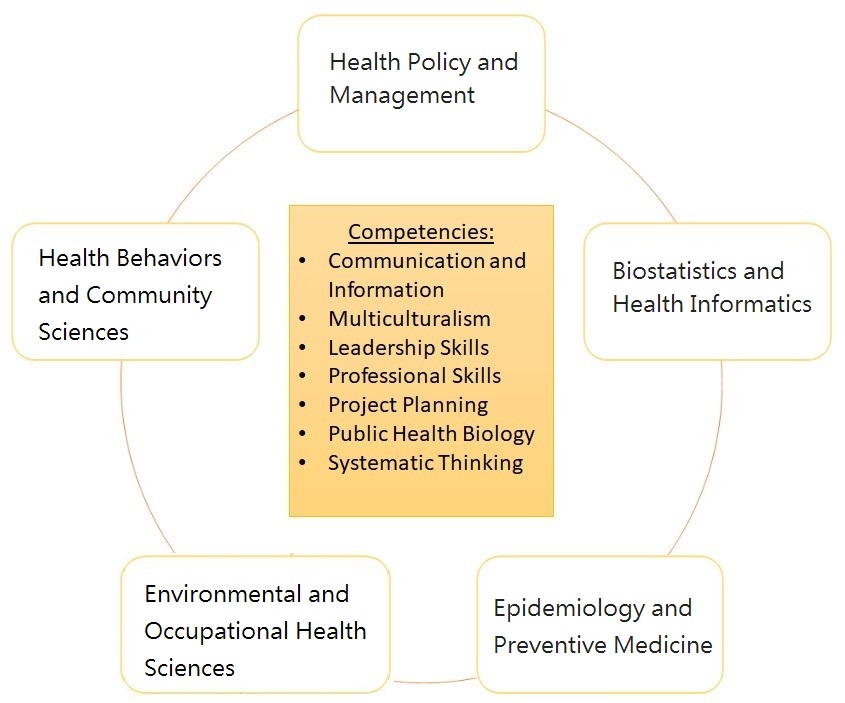
The purpose of public health is to guarantee the health and well-being of all people and to implement health equality. For instance, disease prevention, environmental health, occupational safety and health, food and drug safety, medical care systems, community health promotion all belong to the scope of public health infrastructure. The state of public health development in a country also reflects its degree of social evolution.
Public health is an integrated science, which includes core disciplines in the following five categories: "Biostatistics and Demography", "Epidemiology and Preventive Medicine", "Environmental and Occupational Health Sciences", "Health Behaviors and Community Sciences", and "Health Policy and Management". For public health researchers and practitioners, cross-domain knowledge and teamwork are indispensable abilities. Given that public health is closely linked to social development and global factors, public health education also emphasizes social care, multiculturalism and a global perspective.
Department of Public Health was established in 1972, originally affiliated to the National Taiwan University Medical College, and in 1993 became independent and was named as the College of Public Health, National Taiwan University (NTU). With the joint efforts of our teachers and students, the College of Public Health passed the assessment by the Council on Education for Public Health (CEPH) in the United States in 2017, becoming the first place outside of North America to get the CEPH accredited college certification. This certification not only represents the recognition of the teaching quality of the College of Public Health by the international public health education academics, but also represents the determination of teachers and students of the school to improve international visibility and energy for international participation.
School of Public Health currently has range of programs that include: bachelor's degree program, six graduate institutes (Institute of Epidemiology and Preventive Medicine, Institute of Environmental and Occupational Health Sciences, Institute of Food Safety and Health, Institute of Health Behaviors and Community Sciences, Institute of Health Policy and Management, and Institute of Health Data Analytics and Statistics) and two program courses (Master of Public Health Degree Program and Master of Global Health Degree Program). This department employs over 60 faculties and has an abundance of teaching resources.
The purpose of this department is to cultivate public health professionals with core competencies and expertise and actively encourage the following core values (CITE):
- Compassionate Care: Caring about public affairs and caring for the weak in society
- Integrity: Seeking truth, bravely revealing disadvantages
- Team: Able to work with others
- Equality: Value equality
Over the past 50 years of this department's history, we have cultivated a large number of public health professionals in Taiwan. Alumni of the department have not only exerted their expertise in research and higher education institutions at home and abroad, but also play important roles in departments of health administration, environmental protection administration, occupational safety administration, health administration and others; there are also many alumni who have invested in industry and private non-profit organizations.
In terms of basic public health, this department refers to the guidelines of the Association of Schools and Programs of Public Health (ASPPH) in the United States to design core courses in five major areas: Epidemiology and Preventive Medicine, Biostatistics and Health Informatics, Environmental and Occupational Health Sciences, Health Behaviors and Community Sciences, and Health Policy and Management. The course content emphasizes cross-disciplinary integration skills, such as: communication and information, recognition of multiculturalism, leadership skills, professional skills, project planning, public health biology, and systematic thinking.
(Please refer to the figure below)
Figure 1: Professional competency needed in contemporary public health professionals

Review and Outlook: 50th Anniversary of NTUDPH (link)
Review and Outlook: 50th Anniversary of NTUDPH (Trailer)
